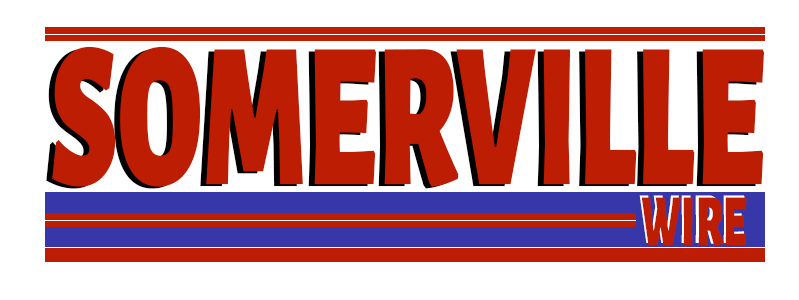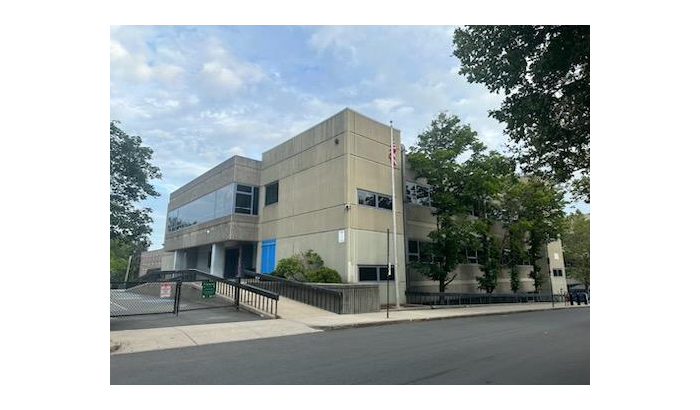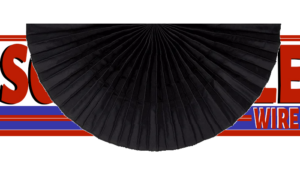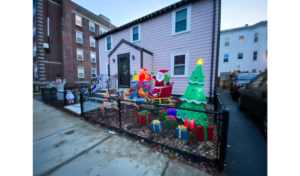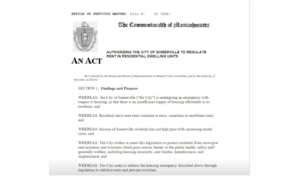In Somerville’s education system, the City’s studies come first
(Somerville Wire) – Following a partial ceiling collapse, students of the Winter Hill Community Innovation School will not return to their building next year. Faced with a three-year timeline on a master plan to redevelop the Winter Hill Community Innovation School and the Benjamin G. Brown School, the City Council and community are searching for faster approaches to resolving the mounting facilities crisis. But studies to ensure development serves generations of students take time.
The Winter Hill School closed Friday June 2, displacing over 400 students, after a piece of concrete fell into a stairwell over the weekend. Students are currently finishing the school year using available spaces at Tufts University and the Edgerly Education Center, which currently houses the administrations of both Somerville Public Schools and Parks and Recreation.
Those administrations will relocate in July, as the city has decided to keep grade students, including those in the AIM program, in the Edgerly Building this fall. Pre-Kindergarten and Kindergarten students will move to the Capuano School. This could be up to a three-year solution, said Rich Raiche, director of infrastructure and asset management for Somerville.
It took a matter of days for the city to relocate Winter Hill students, and weeks to decide a plan for the fall, but the Winter Hill School and Brown School communities want new, functional buildings, which could take another three years.
“It isn’t for lack of will,” Raiche said. “Many folks are oversimplifying the complexity of constructing or renovating a building.”
The City just concluded the first phase of a four-year master plan to rebuild the Winter Hill school: an enrollment and building capacity study—which Raiche said did not provide “terribly great data” while officials still have to dial in trends to a more local and situational level.
The Winter Hill School’s AIM program serves K-8 Somerville students with special education needs and it’s quickly growing. The program is in dire need of more rooms that support small class sizes of 4-6 students, but Winter Hill School does not have room to expand within its current lot on Sycamore Street. Which poses the question of whether the building should move locations.
“It’s not a foregone conclusion that [the Winter Hill building] should remain at 115 Sycamore Street,” Raiche said. “Sizing issues aside, if you think about where all of our schools are, the mass of them are very east-centric. It might be worth considering better locations.”
The City’s second phase entails a gap analysis which will identify swing spaces to house the students while the new building is constructed. In its third phase, the city will conduct a feasibility study which, in light of the Winter Hill closure, it will self-fund to accelerate the master plan by six months to a year, Raiche said.
But in its final phase, the City will need a combination of tax-payer money and funds from the Massachusetts School Building Authority to design and construct the new building. The School Committee submitted a statement of interest in April to secure funds from MSBA, ignoring the City’s desire to wait for the data to bolster the application. In an interview for the Somerville Wire in March, Raiche expressed fear that the MSBA would respond with a clawback on funds it issued the City to repair and renovate the roof, windows, doors, and schoolyard of the Winter Hill in 2018.
But a clawback hasn’t happened. Instead the early application placed the building on MSBA’s radar. According to Raiche the MSBA and the city met recently and agreed that the full scope of issues facing the city’s school buildings is still to be determined. “There is a technical exercise that takes the ‘s word’—study,” Raiche said.
Still, the City Council is pushing for an expedited process. Days after the Winter Hill School’s closure, the Somerville City Council approved a number of items to be discussed during the June 28 School Building Facilities and Maintenance Special Committee. The Council called for a dedicated staff to oversee an expedited construction and design process, a website to update the public on the city’s progress, and a supplement to the statement of interest issued to the Massachusetts School Building Authority for construction funding, to detail the recent structural failure.
“The City needs someone dedicated to school buildings and staff for mechanical systems. Buildings have been neglected and need to be reassessed every five years,” Councilor Beatriz Gomez-Mouakad said.
“We suffered in a way from having that beautiful schoolyard,” Councilor Jesse Clingan said. “It signaled that we were investing in the school in a way. It diverted people’s attention away from that building. Between the yard, the new windows, and the roof, it definitely distracted away from the real innards of the building,” Clingan said.
Clingan has tried unsuccessfully to establish lines of communication with the City’s public schools to monitor issues. “The schools are in a bit of a bubble,” he said. “And I don’t think people realize this is an issue within my purview. When I learn of issues, I can fight for them and ensure they’re addressed.”
More recently, Clingan has obtained a report of all the 311 calls, but the report was not very issue-specific, he said. But Clingan can rely on his own experiences as a student at the Winter Hill School, years ago.
“It had leaks then. I don’t have to be an engineer to say 30 years of water damage can compromise a building,” Clingan said.
Perspectives vary on how the Winter Hill School has reached its dilapidated state. The Somerville Wire inquired with DPW Wednesday morning, but the Office of Communications & Community Engagement explained due to DPW staff schedules, they were unable to provide accurate answers until next week.
Raiche believes there are more inherent issues particular to the 1970s architecture. “You don’t see a lot of buildings from that era, of that construction type, still operational. They’re highly problematic,” Raiche said. “Buildings built in the thirties or late 1800s are still open and operating today.”
Clingan suspects it was a mix of deferred maintenance and a 50-year old building coming to the end of its life. But he is certain that more intentional focus on the City’s schools would have prevented this emergency.
“It’s frustrating that we’ve become this cultural mecca with arts festivals and stuff—in this light, these seem like breads and circuses. We used to do these happiness surveys years ago. Meanwhile, the infrastructure is continuing to age and crumble.”
This article is syndicated by the Somerville Wire municipal news service—a project of the IRS 501(c)(3) tax-deductible nonprofit Somerville Media Fund.
All Somerville Wire articles may be republished by community news outlets free of charge with permission and by larger commercial news outlets for a fee. Republication requests and all other inquiries should be directed to somervillewire@somervillemedia.fund.
SUBSCRIBE TO THE SOMERVILLE WIRE EMAIL NEWSLETTER: http://eepurl.com/hX3alr
Check out all our social media here: https://linktr.ee/SomervilleWire.
Ryan DiLello is the staff reporter for the Somerville Wire
